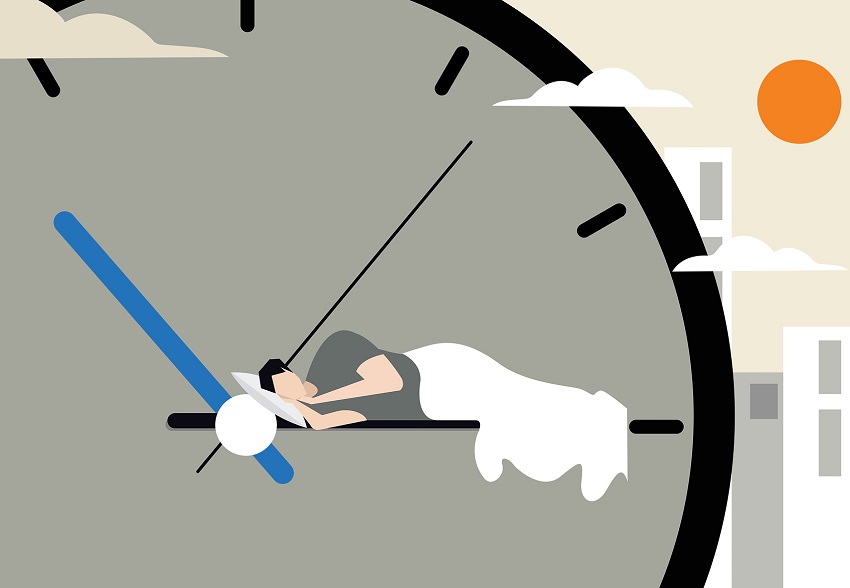In our fast-paced world, time is of the essence, and many people are constantly seeking ways to maximize productivity and achieve more in less time. One trend that has gained popularity in recent years is polyphasic sleep, a sleep pattern where an individual breaks their sleep into multiple, shorter naps throughout the day rather than following the traditional monophasic sleep schedule of one long sleep session at night. The idea behind polyphasic sleep is that it allows individuals to function on less total sleep time while maintaining optimal brain performance. But is polyphasic sleep really good for the brain? Let’s explore this topic and delve into the science behind it. The article is developed by myselfimprovementtoday.com
What is Polyphasic Sleep?
Polyphasic sleep is not a new concept and has been practiced by some cultures and historical figures throughout history. However, it has gained renewed interest in recent times due to its potential benefits in optimizing sleep and productivity. In a polyphasic sleep schedule, an individual takes several short naps, usually lasting between 20 minutes to 2 hours, spread throughout the day. These naps are strategically timed to ensure that the individual enters the REM (rapid eye movement) phase of sleep, which is considered the most restorative stage, during each nap. Explore what is polyphasic sleep.
Understanding Sleep Cycles
Before delving deeper into the effects of polyphasic sleep on the brain, it’s essential to understand the concept of sleep cycles. Sleep is not a uniform state; instead, it occurs in cycles of different stages. The two main phases are REM sleep and non-REM sleep, each serving different bodily functions.
- Non-REM Sleep: This stage can be further divided into four stages, each characterized by different brainwave patterns. Non-REM sleep is associated with physical restoration and is crucial to memory consolidation.
- REM Sleep: This is the stage where most dreaming occurs, and it is essential for cognitive functions, emotional regulation, and learning.
The Polyphasic Sleep Patterns
There are several different polyphasic sleep patterns, each with its own unique schedule. Some of the most well-known polyphasic sleep patterns include:
1. Everyman Sleep Schedule
The Everyman sleep schedule involves taking four to six naps throughout the day, each lasting 20-30 minutes, along with one main sleep session of 2-3 hours at night.
2. Uberman Sleep Schedule
The Uberman sleep schedule is one of the most extreme polyphasic sleep patterns, consisting of six equally spaced naps, each lasting 20-30 minutes, throughout the day, with no main sleep session at night.
3. Dymaxion Sleep Schedule
The Dymaxion sleep schedule, popularized by Buckminster Fuller, involves taking four 30-minute naps throughout the day, totaling only two hours of sleep.
The Science Behind Polyphasic Sleep
Proponents of polyphasic sleep claim that strategically timing naps to enter REM sleep can reduce the overall amount of sleep needed without compromising cognitive function. However, the scientific evidence on the efficacy and safety of polyphasic sleep is limited.
Some studies have shown that short naps can improve alertness, memory, and cognitive performance. However, these studies are often short-term and involve single-day experiments rather than prolonged polyphasic sleep patterns. Long-term effects and potential risks associated with polyphasic sleep have not been extensively studied.
Potential Benefits of Polyphasic Sleep
- Increased Alertness: Short naps can lead to increased alertness and improved focus, which may benefit certain tasks requiring sustained attention.
- Enhanced Memory Consolidation: Polyphasic sleep may aid in memory consolidation as the brain enters the REM phase more frequently, associated with memory processing.
- Time-Saving: Polyphasic sleep gives individuals more waking hours, potentially increasing productivity.
Potential Risks of Polyphasic Sleep
- Sleep Deprivation: If not planned and executed correctly, polyphasic sleep patterns can lead to sleep deprivation, adversely affecting cognitive function and overall health.
- Disrupted Circadian Rhythm: The human body is naturally tuned to a circadian rhythm, and altering this rhythm with irregular sleep patterns can cause health problems.
- Social Isolation: Polyphasic sleep patterns may not align with societal norms, leading to social isolation and difficulty maintaining regular social interactions.
Conclusion
While polyphasic sleep may offer some benefits regarding increased alertness and potential time-saving, it also carries risks if not approached with caution. The lack of robust scientific evidence on the long-term effects of polyphasic sleep makes it difficult to draw definitive conclusions about its impact on brain health. Before adopting a polyphasic sleep schedule, individuals should consult with healthcare professionals and carefully weigh the potential benefits and risks.
FAQs
Is polyphasic sleep suitable for everyone?
Polyphasic sleep may not suit everyone, as individual sleep needs and tolerances vary. It’s essential to consider personal health and lifestyle factors before attempting a polyphasic sleep schedule.
Can polyphasic sleep replace monophasic sleep entirely?
While some individuals claim to thrive on polyphasic sleep alone, the majority of people still require a substantial amount of continuous sleep for optimal brain function.
How long does it take to adapt to a polyphasic sleep schedule?
Adapting to a polyphasic sleep schedule can take several weeks, and during this time, individuals may experience sleep disturbances and fatigue.
Are there any known health risks associated with polyphasic sleep?
The potential health risks of polyphasic sleep, especially in the long term, are not fully understood. Sleep deprivation and disrupted circadian rhythm are among the primary concerns.
Is polyphasic sleep a substitute for good sleep hygiene?
No, polyphasic sleep should not be seen as a substitute for maintaining good sleep hygiene, which includes consistent sleep schedules, a comfortable sleep environment, and stress management.





